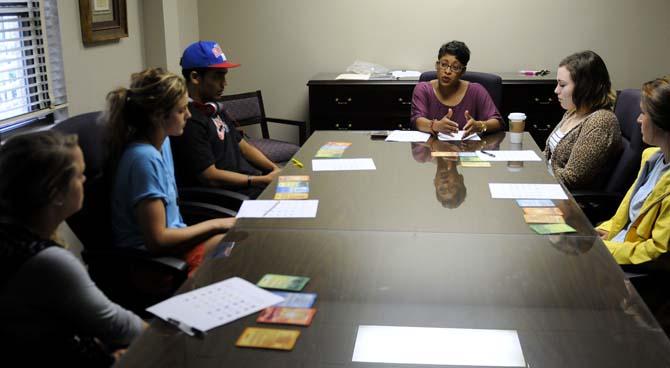If you’re sitting in your gen ed chemistry class reading this column, you are probably in the very late stages of boredom. But you have to complete this course for your major, so you’re here.
You are one of 29,549 students studying at a conglomerate university that encompasses arts, humanities, business, engineering, agriculture and who knows what else. So, the University tells you to pick a major and hope for the best. According to the LSU Dean of Students, the average student changes majors about three times before they graduate.
But it doesn’t have to be like this.
If we grouped students by conscious choice and by subconscious personality type, we could effectively separate them without the need to declare a major before their first year. This is partially at work in the LSU University College’s True Colors workshops. The point of the program is to lend guidance to students who have not decided on their majors and point them down a path to success based on personality type.
Then put them through tailored general education regimes that are broad, yet focus on their interests.
Currently, the University coaxes high school seniors into picking a career path out of 72 major fields, according to the 2011-2012 General Catalog, before they step onto campus. But over the next four years, many decide that their aspirations were not, shall we say, realistic. Then it’s up to the state to educate them through the ensuing “victory lap(s).”
The University endorsed this academic malingering by boasting in 2012 that the six-year graduation rate was at 66.7 percent, an all time high. There has to be a more efficient way to get students on the track toward graduating on time.
By using the same process as True Colors, the University could gauge a student’s personality type and narrow down his or her prospective majors. From there, they could incorporate the student’s preference to determine a first-year curriculum.
This leads to the increased emphasis on everyone’s favorite gripe: general education courses.
The object of a general education course is not necessarily to learn and retain the information that you regurgitate onto your midterm and final exams; it is to develop the critical thinking skills associated with the subject. But for freshmen, it can also help choose a path of study.
This is a good starting point for many students, especially freshmen, who are lost amid the confusion of finding Cox Auditorium. But it’s not nearly enough. First-year students need to focus less on their last three years and spend their first two semesters mastering all of the skills necessary to succeed in any college course.
A more encompassing general education curriculum would teach skills for all parts of the brain. Freshmen should be required to take all general education their first year in both topics that apply to their interests and those that do not. The result is a well-rounded thought process when approaching any college course.
For instance, English 2000, which should be immune to ACT exemptions, teaches students the fundamentals of writing at a college level.
The same goes for math. Humanities students nearly vomit at the thought of numbers, but exercising the deductive brain process used during problems is essential in developing the analytical skills needed to write papers.
Without learning to use both of these methods, we are hopeless when it comes time for us to combine them.
By using some kind of combination of personality registry, student choice and a first-year general education curriculum, we could cut down on the number of students who are lost during their second and third years of college. Granted, these changes would be hard for such a large university, but with True Colors, we have begun down the right path.
Now look up; your professor is speaking.
Opinion: Students need a new way to choose their majors
October 1, 2013
Erin Anthony, a counselor at the University Center for Freshman Year, leads a group of students during a True Colors workshop Tuesday, October 1, 2013 in Allen Hall.





